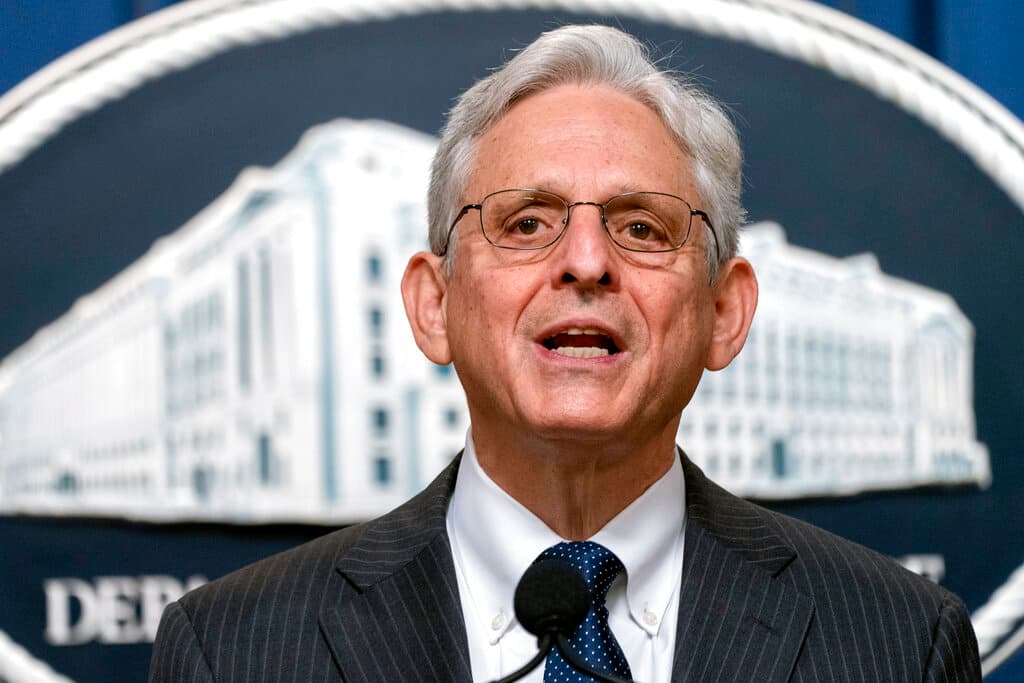Merrick Garland Has One More Fateful Decision To Make — What To Do With Jack Smith’s Final Report on Trump Prosecutions
The special counsel has a last opportunity to make the case against the president-elect, whom he could never drag before a jury.

Word that President Biden is privately seething at Attorney General Garland comes as America’s chief law enforcement official still has a fateful decision to make — whether, and how, to release Special Counsel Jack Smith’s final report.
Mr. Smith is mandated to complete such a project by the regulations under which he was appointed. Those regulations mandate that “at the conclusion of the Special Counsel’s work, he or she shall provide the Attorney General with a confidential report explaining the prosecution or declination decisions.”
The Washington Post relates that Mr. Biden’s ire has been aroused not by Mr. Smith, but by his boss — Mr. Garland. The 46th president is reportedly incensed by his attorney general’s decision to wait two years to charge President Trump and rues that he was swayed away from another possibility for attorney general, Senator Jones of Alabama. The Post also reckons that Mr. Biden is resentful of the prosecutions of his son Hunter, whom he pardoned.
Trump’s victory over Vice President Harris proved too much for Mr. Smith to overcome. The Department of Justice ruled that a sitting president is entitled to “categorical immunity,” and the special counsel moved to dismiss his classified documents and election interference cases “without prejudice.” That means they could be revived at some later date. Mr. Smith reportedly plans to resign before the president-elect accedes to office on January 20.
Mr. Smith on Monday handed the documents case to the United States attorney for the Southern District of Florida, Markenzy Lapointe. Once Trump takes office, though, he will appoint a new United States attorney, who must be confirmed by the Senate. Judge Aileen Cannon, who presided over the classified documents case, dismissed the charges against Trump and two others after she determined that Mr. Smith was unlawfully appointed.
The special counsel intended to appeal that ruling to the 11th United States Circuit, a request for review that has now been withdrawn in light of Trump’s victory. Once Trump takes office, he could issue pardons to those two co-defendants — Waltine Nauta and Carlos De Oliveira — who were both in his employ when charges were handed up against them.
Now that Mr. Smith has withdrawn from the documents case and closed up shop on the election interference one, only one order of business lies ahead — his final report. The special counsel has already shown an interest in crafting documents of impressive length. His motion on prosecuting Trump notwithstanding presidential immunity was quadruple the usual length for such briefs, running to more than 200 pages.
Submitting an opus of such length required judicial permission — Judge Tanya Chutkan granted it before Trump’s victory in November — but it demonstrated that Mr. Smith was eager to put his case to paper even with no trial date on the horizon. Judge Chutkan also decided to release it, albeit with redactions. That drew howls of protest from Trump, who called the document a “monstrosity” and a “political hit job.”
Mr. Smith is reportedly set to resign before January 20 — Trump has said he would fire him “within two seconds” of taking office — which means his report will soon be due. Its tone could be previewed in Mr. Smith’s motions to dismiss his two cases, where he writes that he harbors no doubts as to the “merits” of the prosecutions but was foiled only by the “temporary” nature of the immunity Trump will soon enjoy as president.
Mr. Garland could look to his predecessor, Attorney General Barr, who crafted a strategy to release Special Counsel Robert Mueller’s report in respect of alleged Russian interference in the 2016 election. Mr. Barr first released a summary of the report’s findings, where he underscores that Mr. Mueller had decided against recommending Trump for criminal charges. Some Democrats objected to that method of disclosure.
There is a slim chance that Mr. Smith’s report is not the end of the two federal prosecutions of Trump. The charges were dismissed “without prejudice,” meaning that they could be refiled at a later date — after Trump’s second term — by a prosecutor whose name is not yet known.

